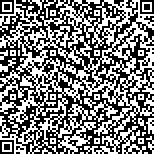本文已被:浏览 6次 下载 1次
Received:April 10, 2024 Published Online:April 20, 2025
Received:April 10, 2024 Published Online:April 20, 2025
中文摘要: 多囊卵巢综合征(PCOS)是育龄期女性最常见的内分泌疾病之一,具有无排卵、高雄激素血症及卵巢多囊样改变等表现,影响患者的生育力及健康。近年来,肠道微生物群被认为是人体的一种内分泌器官,可参与人体代谢、免疫及生殖,而PCOS患者体内存在肠道菌群紊乱和肠屏障功能紊乱。另外,肠道微生物群还受大脑的双向调节作用,这可能说明微生物-肠-脑轴与PCOS的发生、发展相关。中医药方面认为PCOS的发生与肝脾肾密切相关,可从肠道菌群、胰岛素抵抗、雄激素过高等方面治疗,且副作用少,临床疗效好。本文对微生物-肠-脑轴在PCOS中的作用及中医药干预的研究进展进行综述。
Abstract:Polycystic ovary syndrome (PCOS) is the most common endocrine disorder among women of reproductive age, characterized by anovulation, hyperandrogenemia, and ovarian polycystic changes. It affects the fertility and health of patients. In recent years, the gut microbiota has been recognized as an endocrine organ in the human body, playing a role in metabolism, immunity, and reproduction. In PCOS patients, there is an imbalance in the gut microbiota and dysfunction of the intestinal barrier. Furthermore, the gut microbiota is also regulated bidirectionally by the brain, which may suggest that the microbiota-gut-brain axis is related to the onset and development of PCOS. Chinese Medicine considers the occurrence of PCOS to be closely related to the liver, spleen, and kidneys, and treatment can target gut microbiota, insulin resistance, and hyperandrogenism, with fewer side effects and good clinical efficacy. This article reviews the role of the microbiota-gut-brain axis in PCOS and the progress of Chinese Medicine interventions.
keywords: Microbiota-gut-brain axis Polycystic ovary syndrome Chinese Medicine Gut microbiota Inflammatory response Neurotransmitters
文章编号: 中图分类号:R711.5 文献标志码:A
基金项目:国家自然科学基金地区科学基金项目(82160919);林寒梅广西名中医工作室建设项目(2021022-001-07)
| Author Name | Affiliation |
| LUO Jing, LIN Hanmei, GUO Hua, LIANG Wenling, LI Jianling | First Clinical Medical College, Guangxi University of Chinese Medicine, Nanning, Guangxi 530000, China |
| Author Name | Affiliation |
| LUO Jing, LIN Hanmei, GUO Hua, LIANG Wenling, LI Jianling | First Clinical Medical College, Guangxi University of Chinese Medicine, Nanning, Guangxi 530000, China |
引用文本:
